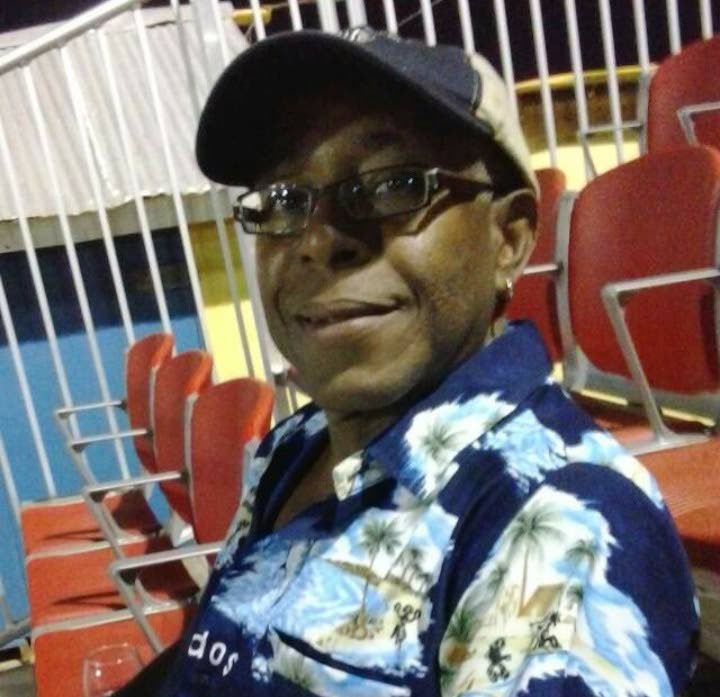Expert on divers’ deaths: 'This story missing plenty people'

Engineering technician and senior construction inspector Simeon Humphrey has reservations about the details being used to explain the fatal incident which claimed the lives of four divers on February 25, and the subsequent response.
On that day, shortly after 2.30pm, Christopher Boodram, Kazim Ali Jr, Yusuf Henry, Rishi Nagassar and Fyzal Kurban were working on a 30-inch underwater crude oil pipeline in Pointe-a-Pierre when there was a sudden inrush of water.
All five men were sucked into the pipeline, with Boodram being the only survivor.
Humphrey told Newsday, “I find it very interesting that before any facts were known, somebody was pushing a Delta P story."
A Delta P incident is one in which pwing to differential pressure, water from one area rushes to fill another. The difference in pressure may may be hundreds of pounds. Diverscan be drawn in and have geat difficulty in escaping.
“That’s an opinion that I found very intereresting, because before anything at all was known, this Delta P story start to make the round…You know what they say about opinions: “Opinions are like a--holes, everyone has one.
“The minister (Energy Minister Stuart Young) came out after an accident on that job and showed a diagram that created even more questions to me than it provided answers.
“If Sprangalang was alive I would use his famous quote, 'This story missing plenty people.'”
For 21 years, Humphrey worked with the National Gas Company (NGC) and oversaw construction projects to expand the company’s natural gas transmission and distribution network. He was responsible for monitoring and supervising, inspecting construction projects both above and below ground/water.
Humphrey said he never saw such an incident during his career.
“The only thing that I accept so far is that some men went to do a job, there was an accident and four people died tragically and most likely unnecessarily.
He said the incident was avoidable and preventable, "because in the 21 years that I worked in the natural gas industry, we didn’t lose anybody on a project. We had no accidents leading to death."
He also pointed out: “Speaking to one or two of my colleagues who are retired and still working in the field, the position is that until all the facts are laid out in a transparent manner, and publicised, everything is just speculation.
“Let’s see if Paria and LMCS will be transparent, and accountable, and publish what their respective operating and HSE policies say about conducting the operation the men were doing, in addition to what codes and standard operating procedures will normally govern it."Humphrey had questions about the situation.
“What was the risk assessment? The dive plan? The emergency response plan? The on-site support equipment, expertise and services before the job commenced?”
"When companies are doing construction and maintenance on their gas transmission and distribution networks – whether it be underwater or aboveground – there are international codes, standards, regulations and operating procedures that must be followed to ensure the highest standard of technical efficiency and safety.”
With TT’s gas transition and distribution network being the Western Hemisphere’s seventh largest, Humphrey said underwater operations are common.
For this reason, he said everyone involved in the operation was culpable in the incident.
“With regard to whatever job these divers were doing, essentially the people who were involved in it at the level of leadership – right down to the level of operators, workers and divers – are thought to have been governed by these codes, standards and operating procedures including the safety plans and emergency response plans.
“The emergency procedure had to be whatever was actually determined prior to start-up of the work and signed off by the competent and experienced professionals who have the duty and authorisation to do so.”
Humphrey said this is one reason why rescue divers responding to the incident may have been blocked by Paria officials and the Coast Guard.
“The emergency response procedure doesn’t come from somebody who see something on TV and an hour later went to rescue something…that is not an emergency response.
“An emergency response plan is a critical part of any project and any job that is being undertaken…and that planning often occurs with a proper job safety or risk assessment.”
Humphrey now looks forward to the proposed independent five-person committee of energy-sector experts that will probe the incident. Energy Minister Stuart Young announced the setting up of the team at a virtual news briefing on Monday.

Comments
"Expert on divers’ deaths: ‘This story missing plenty people’"